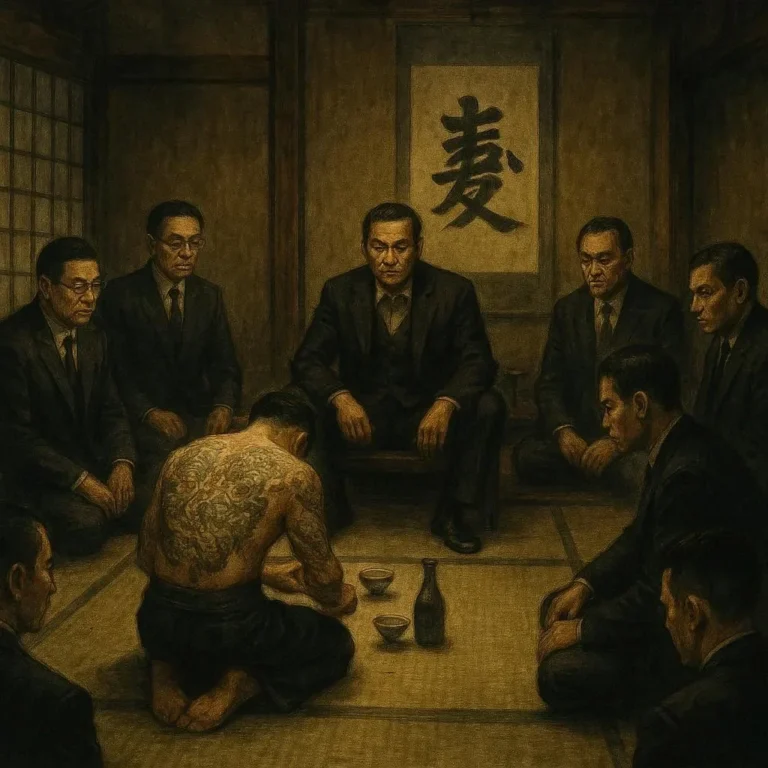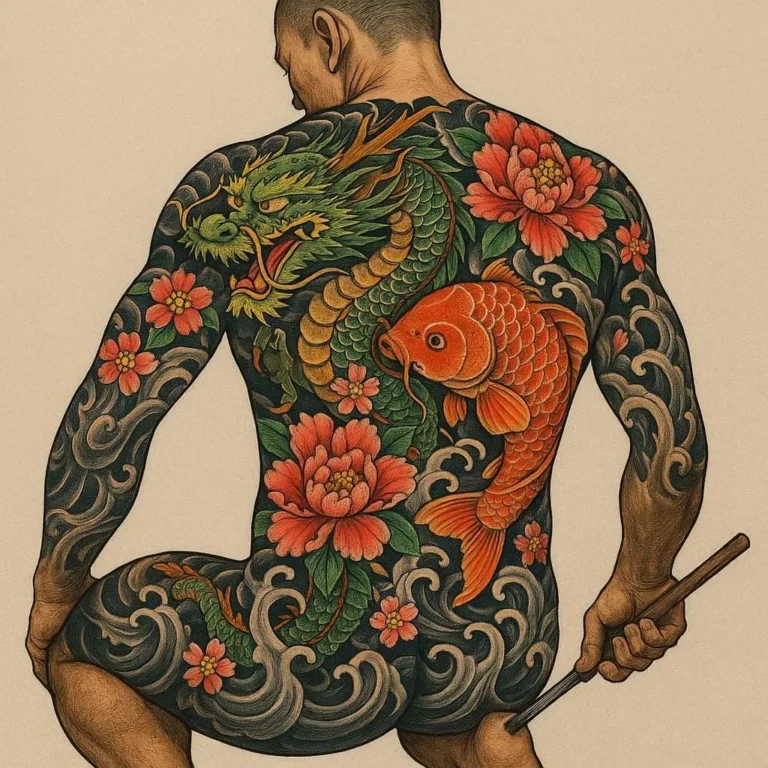504 views The Business Empire of Major Yakuza Families
The Yakuza, Japan’s infamous organized crime syndicates, have long been a subject of fascination and fear. Known for their strict hierarchical structures, intricate tattoos, and code of honor, Yakuza families have woven themselves into the fabric of Japan’s society. Beyond their criminal activities, these organizations have built vast and complex business empires that span multiple industries, both legitimate and illicit. This blog post delves into the business operations of the major Yakuza families, exploring their influence, strategies, and the ways in which they have adapted to the modern world.
The Rise of Yakuza as Economic Powerhouses
The Yakuza’s involvement in business dates back to the post-World War II era, when Japan was rebuilding its economy. At that time, the Yakuza filled the power vacuum left by the collapse of the Japanese Empire, establishing themselves as mediators in disputes, protectors of local communities, and enforcers for businesses. Over time, this role evolved into a more formalized structure, with Yakuza families diversifying their operations into various sectors.
One of the key factors behind the Yakuza’s success in building their business empires is their ability to operate in both the shadows and the mainstream. While many of their activities remain hidden from public view, they have also established legitimate businesses that operate alongside their criminal enterprises. This dual approach has allowed them to amass considerable wealth and influence.
The Yamaguchi-Gumi: The Largest Yakuza Family
The Yamaguchi-Gumi is the most powerful and largest Yakuza family, with an estimated membership of over 50,000. Based in Kobe, the Yamaguchi-Gumi has expanded its operations across Japan and even internationally. The family’s business empire is diverse, encompassing construction, real estate, entertainment, and finance.
In the construction industry, the Yamaguchi-Gumi has been known to bid on public contracts, often using intimidation tactics to ensure they win. They also operate a network of front companies, which enable them to funnel money from their illicit activities into legitimate businesses. Real estate is another significant area of operations, with the family acquiring properties and developments through a combination of legitimate purchases and strong-arm tactics.
The Yamaguchi-Gumi’s involvement in the entertainment industry is particularly notable. They have ties to the Japanese film industry, where they provide ‘protection’ to studios and producers. Additionally, they own or have stakes in several nightclubs, hostess bars, and other entertainment venues. These businesses not only generate revenue but also serve as fronts for other activities such as money laundering.
The Sumiyoshi-Kai: A曜日 Empire
The Sumiyoshi-Kai is the second-largest Yakuza family, with approximately 10,000 members. Based in Tokyo, the Sumiyoshi-Kai has a strong presence in the capital’s lucrative entertainment and real estate industries. Unlike the Yamaguchi-Gumi, the Sumiyoshi-Kai has a more decentralized structure, with individual factions operating relatively autonomously.
One of the Sumiyoshi-Kai’s most lucrative enterprises is its control of Tokyo’s red-light districts. The family has long been involved in the sex industry, operating brothels, massage parlors, and other adult entertainment venues. They also have ties to organized gambling operations, including illegal casinos and betting rings.
In addition to their involvement in the entertainment and gambling sectors, the Sumiyoshi-Kai has also diversified into technology and cybersecurity. This move into the digital realm reflects the Yakuza’s adaptability and their recognition of the growing importance of technology in modern business. The family has reportedly invested in several tech startups, often using their reputation to secure favorable deals and partnerships.
The Inagawa-Kai: A Clan with Global Reach
The Inagawa-Kai is another major Yakuza family, with around 6,000 members. Based in Tokyo and Yokohama, the Inagawa-Kai has a reputation for being one of the most sophisticated Yakuza families, with extensive international connections. The family’s business empire spans multiple sectors, including construction, real estate, entertainment, and finance.
One of the Inagawa-Kai’s most notable ventures is its involvement in the construction industry. The family has reportedly been involved in several large-scale infrastructure projects, including highways, train lines, and public buildings. They have also made significant investments in real estate, acquiring properties in prime locations across Japan and internationally.
The Inagawa-Kai’s media and entertainment division is another key area of operation. The family has ties to several major Japanese recording labels and talent agencies, giving them a significant influence over the country’s music and entertainment industries. They have also invested in several film and television production companies, further solidifying their position in the entertainment sector.
The Yagnarashi-Kai: A Rising Power
The Yagnarashi-Kai is a relatively new Yakuza family, but it has quickly gained notoriety for its aggressive expansion and diversification strategies. Based in Osaka, the family has managed to carve out a significant slice of the Yakuza pie, with operations in construction, real estate, and the entertainment industry.
One of the Yagnarashi-Kai’s most ambitious ventures is its involvement in the renewable energy sector. The family has reportedly invested in several solar and wind power projects, capitalizing on Japan’s growing demand for clean energy. This move into the renewable energy sector not only provides a new source of revenue but also helps to legitimize the family’s operations.
In addition to their involvement in renewable energy, the Yagnarashi-Kai has also expanded into the e-commerce sector. The family has established several online retail platforms, which they use to sell a wide range of products, from electronics and clothing to cosmetics and household goods. These platforms are often used to launder money from other operations, making them a crucial part of the family’s business empire.
The Yakuza’s Business Strategy: A Mix of Coercion and Ingenuity
The Yakuza’s success in building their business empires can be attributed to a combination of coercion and ingenuity. On one hand, the Yakuza relies on their reputation and the fear they inspire to enforce their will and secure favorable deals. On the other hand, they have demonstrated remarkable adaptability and a keen understanding of market trends, which has allowed them to diversify their operations and stay ahead of competitors.
One of the key strategies employed by the Yakuza is their use of front companies. These companies are often legitimate businesses that operate in the same way as any other company, but they are ultimately controlled by the Yakuza. Front companies serve multiple purposes: they provide a way to launder money from illicit activities, they allow the Yakuza to invest in legitimate industries, and they offer a degree of plausible deniability for the family’s criminal activities.
Another important aspect of the Yakuza’s business strategy is their ability to exploit legal loopholes and regulatory weaknesses. Japan’s complex and often fragmented regulatory environment has allowed the Yakuza to operate with a degree of impunity, often by exploiting gaps in the law or by bribing officials to turn a blind eye. This has been particularly evident in the construction and real estate sectors, where the Yakuza has been able to secure lucrative contracts and acquire valuable properties with relative ease.
The Yakuza’s Influence on Japanese Society
The Yakuza’s influence on Japanese society is undeniable. Their business empires have had a profound impact on the country’s economy, shaping industries and creating opportunities for both legitimate and illegitimate enterprises. At the same time, the Yakuza’s presence has also had a social impact, with their activities often generating fear and distrust among the general public.
One of the most significant ways in which the Yakuza has influenced Japanese society is through their role in the construction industry. The Yakuza’s control over construction projects has allowed them to shape the physical landscape of Japan’s cities, determining which areas are developed and how. This has often led to the displacement of local communities and the destruction of traditional neighborhoods, as the Yakuza seeks to maximize profits.
The Yakuza’s influence has also been felt in the entertainment industry, where their involvement has contributed to the evolution of Japanese popular culture. The family’s ties to the music and film industries have allowed them to exert a degree of control over the content that is produced, often using their influence to promote their own interests and values. This has led to the creation of a unique cultural landscape, where the lines between legitimate and illegitimate enterprises are often blurred.
The Future of the Yakuza’s Business Empire
As Japan continues to grapple with the challenges of an aging population, a shrinking workforce, and a sluggish economy, the Yakuza’s business empire is likely to face significant challenges. The decline in the number of young men willing to join the Yakuza has led to a crisis of succession, with many families struggling to find capable leaders to take the reins. At the same time, the increasing pressure from law enforcement and the growing public awareness of the Yakuza’s criminal activities have made it more difficult for the families to operate with impunity.
Despite these challenges, the Yakuza remains a formidable force in Japan’s economy. Their ability to adapt and evolve has allowed them to weather numerous storms, and their business empires continue to generate significant revenue. The Yakuza’s involvement in emerging industries such as renewable energy and e-commerce suggests that they are well-positioned to thrive in the 21st century, even as they face increasing scrutiny and pressure from the authorities.
Conclusion
The Yakuza’s business empire is a complex and multifaceted entity, encompassing a wide range of industries and activities. From construction and real estate to entertainment and renewable energy, the Yakuza’s influence can be felt across Japan’s economy. While their criminal activities have rightly drawn condemnation, their ability to build and maintain vast business empires is a testament to their ingenuity and adaptability.
As Japan continues to evolve and modernize, the Yakuza’s role in the country’s economy and society will undoubtedly change. Whether they will be able to maintain their position as major economic players remains to be seen, but one thing is certain: the Yakuza’s business empire will remain a subject of fascination and concern for years to come.






